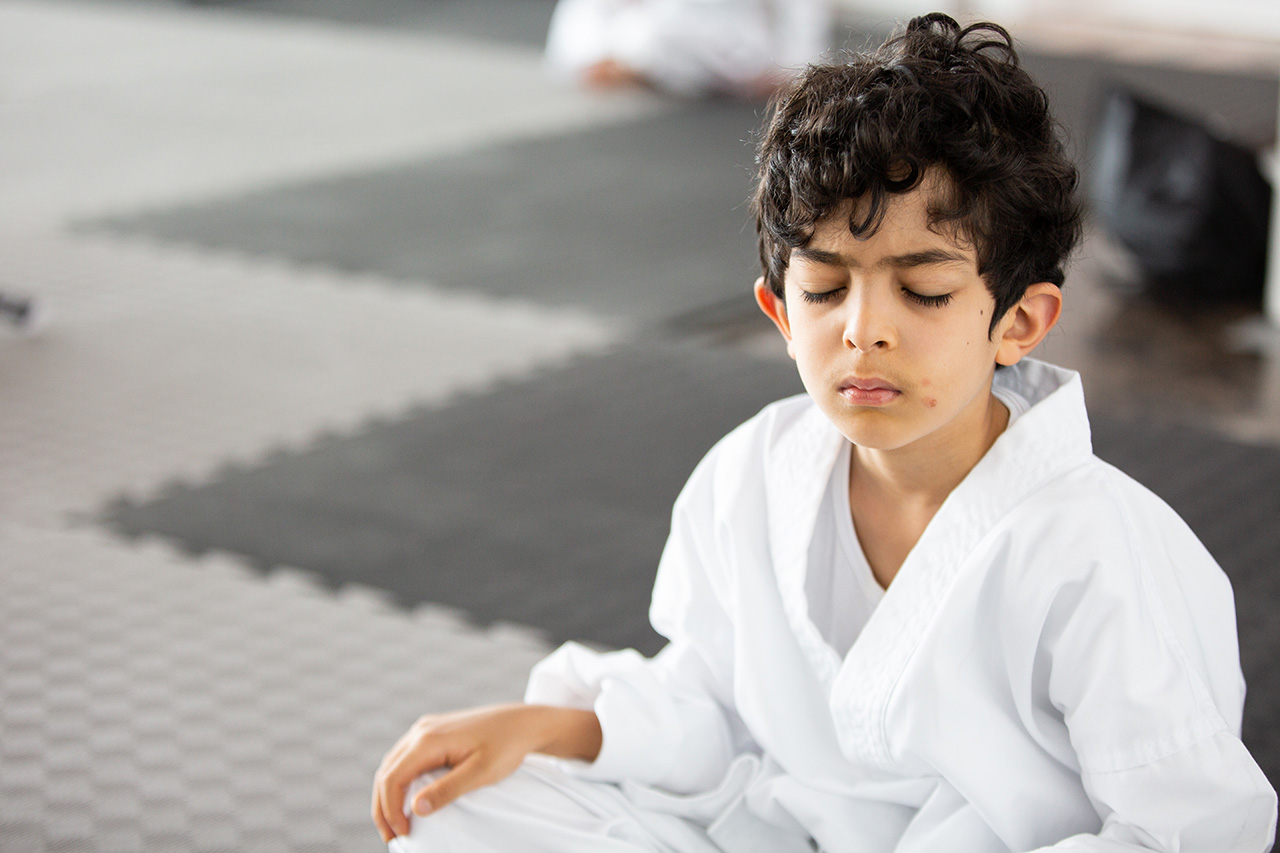In today's fast-paced world, children are facing more challenges and stressors than ever before. From school and peer pressure to changes in their personal lives, it can be overwhelming for kids to manage their emotions and keep their focus. Meditation for children is becoming a much more widely used practice at home and in schools. By learning to meditate, children can develop the skills they need to manage stress, improve their concentration, and achieve their full potential.
The Benefits of Meditation for Children
-
Reduced Stress and Anxiety: One of the most significant benefits of meditation for children is that it can help reduce stress and anxiety. Children today face a wide range of challenges that can cause them to feel overwhelmed and anxious. However, by practicing mindfulness and being present in the moment, children can learn to let go of worries and fears, and reduce their overall stress levels. Additionally, meditation can help children develop a greater understanding of their thoughts and emotions, which can lead to improved emotional regulation and a more positive outlook.
-
Improved Concentration and Focus: Another benefit of meditation for children is that it can help improve focus and concentration. Children today are faced with numerous distractions, from screens to social media, making it difficult for them to stay focused and retain information. By practicing mindfulness and focusing on the present moment, children can develop their ability to pay attention and retain information, leading to better academic performance and overall success.
-
Increased Self-Awareness: Meditation can also help children develop greater self-awareness. By becoming more aware of their thoughts, feelings, and emotions, children can learn to regulate their emotions and develop a greater sense of emotional intelligence. This increased self-awareness can help children build better relationships with others, and lead to a more positive outlook on life.
-
Improved Sleep: Meditation has been shown to improve sleep quality, helping children get the rest they need to perform at their best. By practicing mindfulness before bed, children can relax their minds and bodies, leading to a more restful night's sleep.
-
Enhanced Creativity and Imagination: Meditation can also help children tap into their imaginations and develop their creativity. By using their imaginations and exploring different techniques, children can expand their minds and unleash their full potential.
Getting Started with Meditation for Children
-
Make it Fun: Children are naturally curious and imaginative, so it's important to make meditation fun and engaging. Encourage them to use their imaginations and to explore different techniques and guided meditations. You can also incorporate games and play into your meditation sessions, making it a fun and enjoyable experience for kids.
-
Start Small: Children have short attention spans, so it's important to start with short meditation sessions, and gradually increase the length as they become more comfortable with the practice. You can also use guided meditations to help children get started and to explore different techniques.
-
Lead by Example: Children are often more likely to embrace meditation if they see adults in their lives doing it too. So, make meditation a family activity and encourage everyone to participate. By doing this, children will see that meditation is a valuable tool that can be used by people of all ages.
-
Use Guided Meditations: There are many guided meditations available online specifically designed for children. Encourage your child to use these meditations to get started and to explore different techniques. Guided meditations can also help children develop their focus and concentration skills, as they learn to follow along with the meditation script.
-
Make it a Daily Routine: To get the most out of meditation, it's important to make it a daily routine. Encourage your child to meditate regularly, and make it a part of their daily routine. By doing this, children can develop the skills they need to manage stress, improve their concentration, and achieve their full potential.
Another great benefit of meditation for children is that it can also help them to cultivate compassion and empathy. Children who practice mindfulness and meditation can develop a deeper understanding of themselves and others, and learn to treat others with kindness and respect. This can help foster better relationships and a more positive community.
Meditation is also easy to practice, and can be done anywhere and at any time. Children can meditate while they are walking, playing, or just sitting still. They can use guided meditations or simply focus on their breathing and their surroundings. There is no right or wrong way to meditate, and children can make it their own by incorporating their own creativity and imagination.
If you are interested in introducing meditation to your children, it's important to make it a fun and enjoyable experience. Consider incorporating it into your daily routine, such as before bed or before meals. You can also make it a family activity and encourage everyone to participate. By doing this, children can learn that meditation is a valuable tool that can be used by people of all ages.
It's also important to set aside dedicated time for meditation and to create a peaceful environment. This can be as simple as finding a quiet place to sit, or lighting a candle and playing soft music. Whatever you choose, make sure it creates a calming and peaceful atmosphere for your child to practice meditation in.
Finally, it's important to be patient and understanding as your child begins their meditation journey. It may take some time for them to fully embrace the practice, and that's okay. Encourage them to keep trying, and remind them of the benefits that they can reap from practicing mindfulness and meditation.
In conclusion, meditation for children is a powerful tool that can help them develop critical life skills, reduce stress and anxiety, and improve their overall well-being. By making it a fun and enjoyable experience, and incorporating it into your daily routine, you can help your children unleash their full potential and become confident, well-rounded individuals. So, why not give it a try today and see the benefits for yourself?
Want to learn what your child's breakthrough area assessment is? Take our quiz to learn what area of their character needs the most support.


